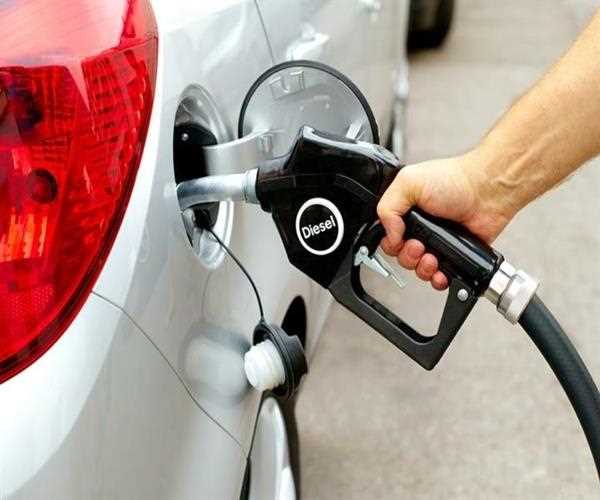
25-Jan-2023
Do Petrol & Diesel Cars Have a Future
For over a century, petrol and diesel cars have been the mainstay of the automotive industry.
They have provided us with reliable transportation and convenience that is difficult to replace. But with the rise of electric vehicles, what does this mean for petrol and diesel cars?
In this view, we’ll explore the current state of the automotive industry and how electric vehicles are impacting it.
We’ll also examine whether or not petrol and diesel cars still have a future in this ever-changing landscape.
What are petrol and diesel cars
- As the world progresses, so too does the automotive industry. Electric cars are gradually becoming more popular, as they offer a much cleaner and more efficient alternative to petrol and diesel cars. However, this doesn't mean that petrol and diesel cars are destined for the scrap heap just yet. In fact, there are still many reasons why someone might choose to buy a petrol or diesel car over an electric one.
- Petrol and diesel cars are typically cheaper to buy than electric cars. They're also easier to find, as most dealerships still stock them. Petrol and diesel cars also tend to have a longer range than electric cars, meaning you can go further without having to recharge.
- That said, electric cars are gradually becoming more affordable, and their range is slowly but surely increasing. As charging infrastructure improves, it's likely that more people will switch to electric cars in the future. But for now, petrol and diesel cars still have a place on our roads.
The pros and cons of petrol and diesel cars
- As the debate surrounding climate change and air pollution continue, many people are wondering if petrol and diesel cars have a future. There are pros and cons to both types of cars, and it ultimately comes down to personal preference.
- Petrol cars tend to be more affordable than diesel cars, and they also get better mileage. However, they produce more emissions than diesel cars, which can be bad for the environment.
- Diesel cars get great mileage and produce fewer emissions than petrol cars, but they can be more expensive. They also tend to be louder and produce more vibration than petrol cars.
- Ultimately, it comes down to what you value most in a car. If you're looking for an affordable option that gets good mileage, a petrol car may be the right choice for you. If you're concerned about emissions and want a car that will go the distance, a diesel car may be the better option.
Are electric cars the future
- Electric cars are becoming increasingly popular, with many people believing that they are the future of motoring. There are a number of reasons for this, including the fact that electric cars are much more environmentally friendly than petrol or diesel cars. Electric cars also have the potential to be cheaper to run in the long term, as there is no need to buy and maintain a petrol or diesel engine.
- However, electric cars do have some drawbacks. They can be expensive to buy, and their range may be limited compared to petrol or diesel cars. Electric cars also require a good deal of infrastructure in order to work properly, such as a reliable supply of electricity and charging points.
The pros and cons of electric cars
- Electric cars are becoming increasingly popular, as they offer many environmental and economic benefits over traditional petrol or diesel cars. However, there are also some potential drawbacks to electric cars that consumers should be aware of before making the switch.
- The main advantage of electric cars is that they produce zero emissions, which is great for the environment. Electric cars also tend to be more efficient than petrol or diesel cars, meaning you'll save money on fuel costs in the long run. Additionally, electric cars often have lower maintenance costs than traditional vehicles.
- However, there are also some potential disadvantages to electric cars. One major downside is that they can take longer to charge than refueling a petrol or diesel car. Additionally, electric cars may not be suitable for long journeys as they can have a limited range before needing to be recharged. Finally, the initial cost of an electric car can be higher than a traditional vehicle, although this is offset by the savings on fuel and maintenance over time.
In conclusion, Despite the move towards electric vehicles, petrol and diesel cars still have a place in our future. While it may be true that there has been an increased focus on creating and producing more fuel-efficient engines for petrol and diesel cars, we must also remember that these are existing technologies which can offer greener solutions than their electric counterparts. This is why many automakers continue to invest in research into petrol and diesel technology, aiming to make them as efficient, reliable and affordable as possible. Ultimately, it is up to us as drivers to decide which type of car best suits our needs - whether petrol or diesel – so only time will tell what the future holds for these two types of vehicle.

SEO and Content Writer
I am Drishan vig. I used to write blogs, articles, and stories in a way that entices the audience. I assure you that consistency, style, and tone must be met while writing the content. Working with the clients like bfc, varthana, ITC hotels, indusind, mumpa, mollydolly etc. has made me realized that writing content is not enough but doing seo is the first thing for it.
Join Our Newsletter
Subscribe to our newsletter to receive emails about new views posts, releases and updates.
Copyright 2010 - 2026 MindStick Software Pvt. Ltd. All Rights Reserved Privacy Policy | Terms & Conditions | Cookie Policy